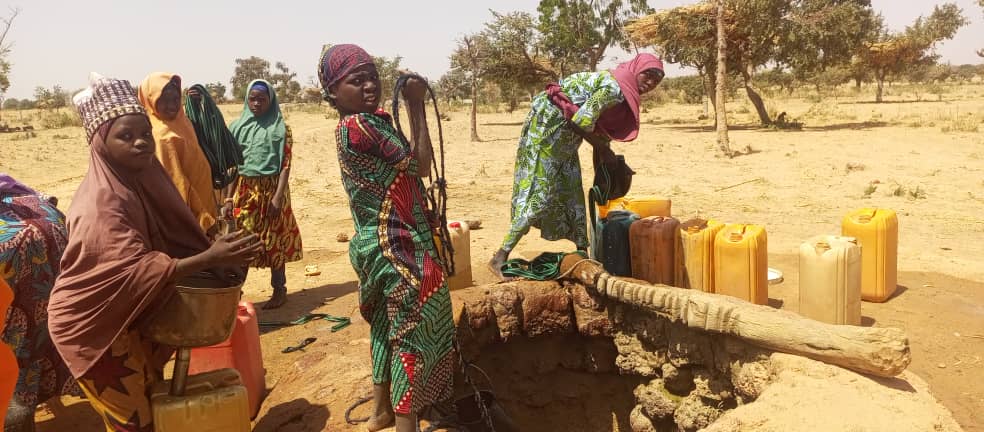From Godwin Tsa, Abuja
Minister of Livestock Development, Idi Maiha said his ministry would expand the livestock sector’s Gross Domestic Product (GDP) contribution from $32 billion to $74 billion by 2035.
Speaking at a ministerial press briefing yesterday in Abuja, Maiha said the aim is to position the ministry as a key player in both domestic and international markets for animal protein, similar to leading producers like Brazil, Argentina, and the United States.
He disclosed that the livestock sector is expected to generate over 500, 000 new jobs helping to reduce unemployment and drive rural economic growth by 2027.
Maiha who presented the scorecard of his new ministry noted that it is already engaging stakeholders, including traditional rulers, development partners, and foreign embassies, to raise awareness of the sector’s potential.
According to him, the ministry has, within a short period, established seven key departments within the ministry, all focused on enhancing the livestock value chain.
In addressing one of the major challenges facing the livestock industry, which is inadequate infrastructure, he said the ministry is revamping grazing reserves nationwide, equipping them with feed and fodder facilities, water resources, veterinary services, and schools for pastoral families.
“With more than 417 grazing reserves spanning over five million hectares, the government aims to transform these areas into economic hubs for beef production, dairy farming, and leather processing.”
He added that the ministry has also secured significant investment commitments from international partners.
One of the most significant outcomes of these international engagements spearheaded by President Bola Tinubu was Brazil-Nigeria Trade Mission, which secured a landmark $2.5 billion investment deal with JBS S.A, the world’s largest meat processing company.
This partnership, he said, will establish large-scale meat processing plants for beef, poultry and pig production, create over 50,000 direct and indirect jobs in Nigeria’s meat industry and enhance the country’s participation in global livestock markets, thereby increasing exports to the Middle East, Europe and North Africa.
Additionally, he said discussions are on-going with private sector investors from the U.S., France, the U.K., China, and Morocco, among others, to further develop the sector.
To boost exports and meet international standards, Maiha noted that the ministry is prioritising the modernisation of abattoirs across the country.
Currently, many slaughterhouses operate below global hygiene standards, limiting Nigeria’s ability to export processed meat.
“Over the last seven months, the inistry has had several engagements with investors, agribusiness firms, and livestock value chain actors to drive investments in establishment of farms, breed improvement and artificial insemination initiatives, expansion of feed and fodder production, input supplies, cold-chain logistics for safe transportation of packaged meat and dairy products and the modernisation of abattoirs and processing facilities to meet international standards.”
This, he said, has led to significant private sector commitments, with investors expressing interest in establishing large-scale dairy farms, meat processing plants, and feed production factories across Nigeria.
Furthermore, he said efforts are being made to harness the full value of livestock by-products, such as bones, hides, and horns, which are currently underutilised.
He estimated that proper processing of these materials could generate up to N23 billion in additional revenue and create 700,000 jobs.
Recognising the need for accurate data, the minister noted that his ministry is leveraging technology to conduct a nationwide livestock census.
“The last official census was in 1991, making current figures unreliable. A national livestock identification and tracking system has been launched to monitor animal populations, prevent theft, and improve disease management.
Maiha while noting that the government is also prioritising animal health, as Nigeria currently imports $1.5 billion worth of vaccines annually, said plans are underway to commercialise the National Veterinary Research Institute to ensure the domestic production of at least 1.2 billion vaccine doses per year.
“Currently, the livestock sector contributes approximately five per cent to Nigeria’s GDP. The ministry’s ambitious goal is to double this contribution through policy reforms, investments, and increased production. Strategies include increasing milk yields from the current two litres per cow per day to at least 30 litres, and improving beef cattle growth rates to reach market weight within two and a half years.
“We are embarking on a massive genetic upgrade of our livestock to boost productivity,” the minister stated.
“This will be achieved through methodical improvements in breeding, animal health, and feed production. Our goal is to move from subsistence to commercial-scale operations, ensuring that Nigeria becomes a major player in global livestock trade.”




 1 day ago
26
1 day ago
26








 English (US) ·
English (US) ·